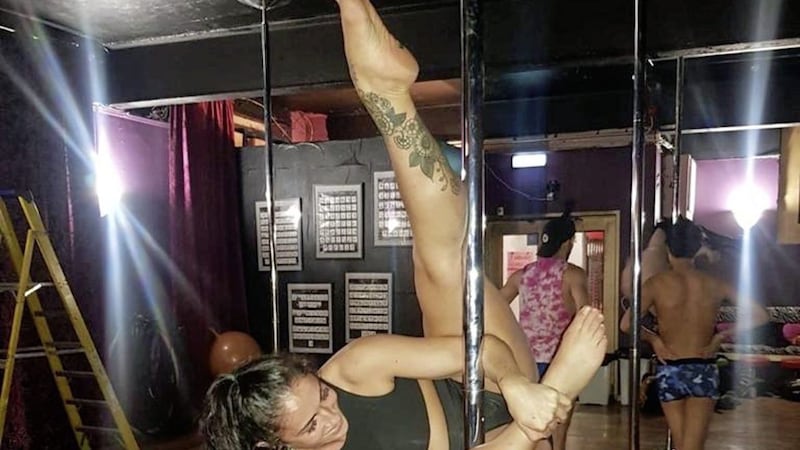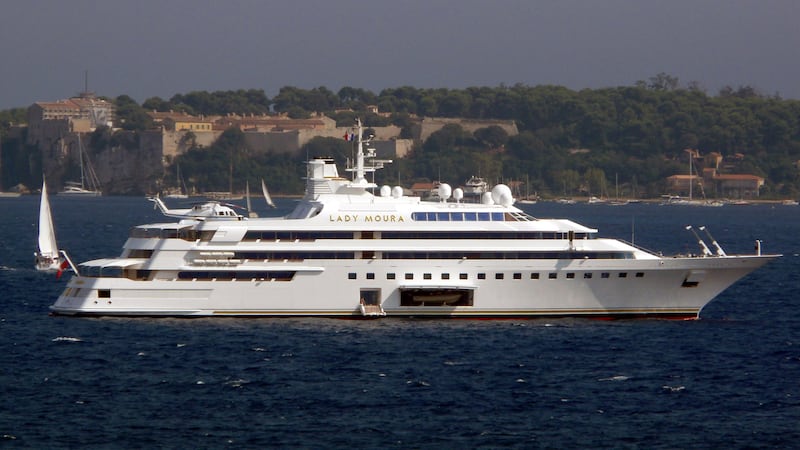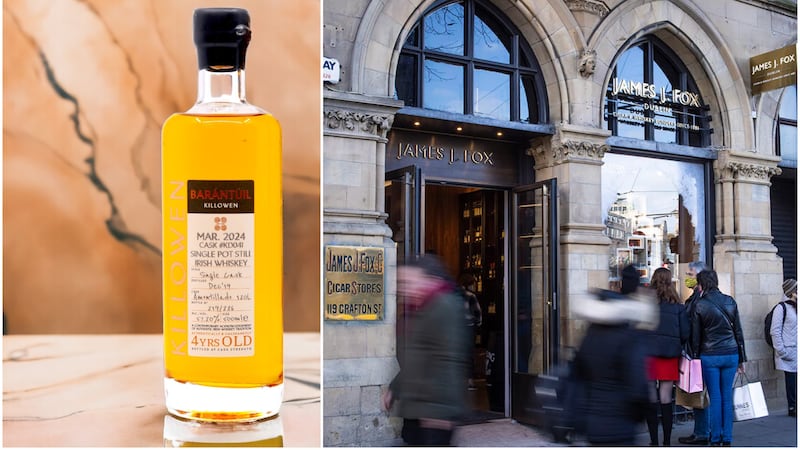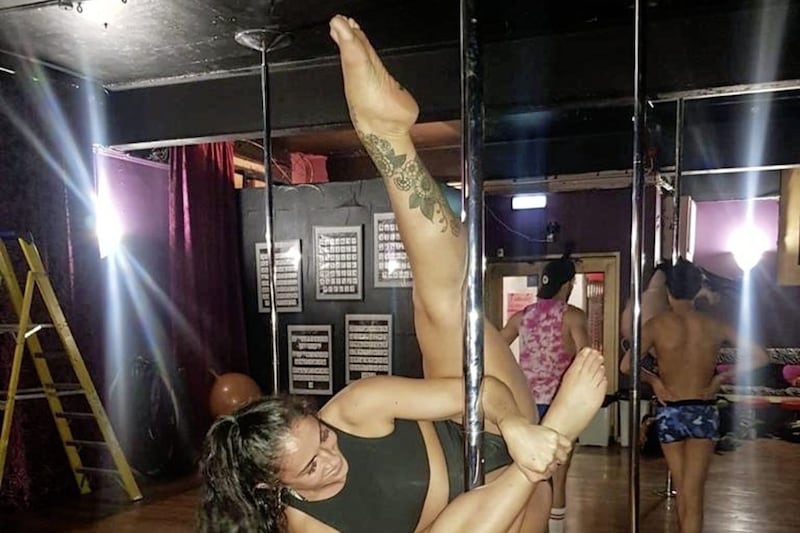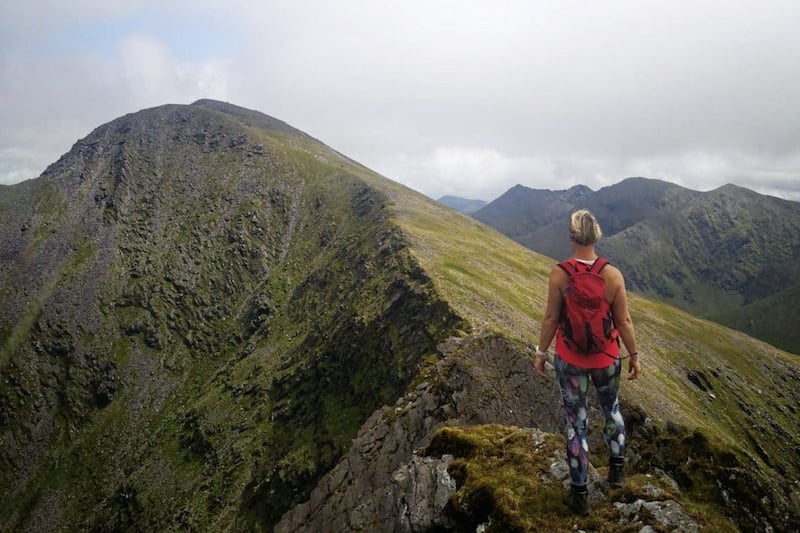WHEN Maria Cummings was unable to pour herself a full mug of tea because her hands were shaking so badly, she knew the time had come to face the harsh truth – at 25 years of age she was an alcoholic.
The south Belfast woman had started to drink at the age of 15 but a social habit soon became an addiction and within two years she'd moved out of her Finaghy home to live with some friends. With no family around to watch her or express concern, she drank freely and often. She then progressed to drug taking; smoking cannabis frequently, before moving on to cocaine and ketamine.
At the University of Liverpool, where she studied mechanical engineering, she earned the reputation of the ultimate party girl. She downed vodka and cider daily and her drug use intensified too. But while her fellow students considered her fun and the life and soul of every gathering, Maria knew she was using drink and drugs to mask mental health issues and a deep-seated unhappiness. She also knew her addictions were spiralling out of control.
In a bid to entice her away from her excessive partying, her boyfriend at the time suggested they move to Cambodia for a slower-paced life. With no access to drugs in the country, she was able to withdraw from them, but the drinking continued. When they returned to Belfast a year and a half later, Maria knew she was in serious danger and that the time had come to clean up her act.
Thanks to a combination of counselling, a 12-steps recovery programme and exercise – bodybuilding and polercise – Maria is now five years sober and feels healthier and happier than she's ever done. And her message to other young people fighting their own demons is that it is possible to overcome addictions and live a good, sober life.
“Moving to Cambodia was meant to be a new start,” says Maria. “My boyfriend was hoping it would fix me; I was too. But it was like the Wild West out there. There were no laws and no-one judged you. I stopped taking drugs because I couldn't get any but I worked in a bar and drank loads.
“I met lots of people in Cambodia, other foreigners, who were in the same boat as me, running away from their problems and addictions. I drank all the time; I was bloated, jaundiced, unable to sleep and I couldn't keep food down.
“I couldn't hold a full mug of tea without spilling it because I was shaking so much. I had to pour myself half a cup. I was in a really bad way, physically and mentally. My boyfriend knew I was dying and didn't want to enable me any longer, so we moved back to Belfast.
“Living at home, there was no hiding it from my family and they were very concerned. I still wasn't ready to do anything about it, though.”
Maria's father tried to encourage her to go to rehab but she was convinced she'd be locked up in an institution and refused to go. Eventually they reached a compromise; Maria would go for counselling. She found herself an 'incredible' counsellor, who urged her to join a 12-step recovery programme. By this stage, Maria had left home once more and had moved in with her granny.
“I had no job, no friends, no contact with my family. My head was in a bad state,” she says. “I'd hit rock bottom.”
When her family saw she was serious about getting sober, they rallied around to support her. Maria had accepted by this stage that she was an alcoholic. Admitting she had a problem was the first step in her recovery.
“I knew nothing about alcoholism. It's not in my family,” she says. “I have an addictive personality and I had mental health problems which I masked with drink and drugs.
“But I certainly never thought it's where I was going to be at age 25; an alcoholic.”
The first three to six months of recovery were tough. Maria was exhausted all the time, still shook badly and found it difficult to sleep. But after a while, she began to feel stronger and healthier. Overweight from years of neglect, she joined a gym and fell in love with bodybuilding. She even competed in a body-building competition last year and came first. She also discovered polercise.
“I got into recovery in 2015 and a year later, I took up polercise as a student,” she says. “I was enjoying the gym but wanted to do something else to increase my strength; something quite different.
“I signed up for a beginner's course and have to say, I wasn't a natural. I didn't have a gift for it. But I stuck with it, going twice a week and I absolutely loved it. It's amazing how quickly the body can change and polercise really helped boost my confidence.”
But it wasn't just physical changes which spurred Maria to keep going. Having lost her circle of friends due to her addictions, she suddenly found herself surrounded by a group of women, many of whom had been through their own hard times too, willing her on.
“Coming into sobriety, I had to make changes,” she says. “I didn't have many friends and found social situations difficult. But through polercise, I've made some of the closest friends I have now. They all know my story and no-one judges me. I know I have their full support and that means so much to me.”
It's been five years now since Maria last touched a drop of alcohol. She's heading into her final year of a master's degree at Queen's University, having dropped out of university in Liverpool due to her partying. She also works as a maths tutor and has even progressed to becoming a polercise instructor, taking classes in Belfast every Monday. Life is good now, she says.
“I count myself lucky in that I never ended up in a police cell or hospital. I never lost a house or marriage. But my mental health did deteriorate and I felt paranoid and afraid. I also felt isolated. Loneliness is the worst part of addiction," Maria says.
“I'm still in recovery; still doing the programme. I have my own house now, the support of my family and I've lost all the extra weight I was carrying. I feel healthy and confident and thanks to polercise, a great sense of belonging. I have a wonderful bunch of women around me and no matter what's going on in my life, a safe place to go.
“I've had to do a lot of work on my mental health; dealing with guilt and pain as well as learning coping mechanisms for dealing with stress. My life is different now than it was; it's normal. I go clubbing, I go to the gym, I'm back at university. I thought I'd have to give up loads when I got sober, but I didn't. The only thing I had to give up was the drink.”
